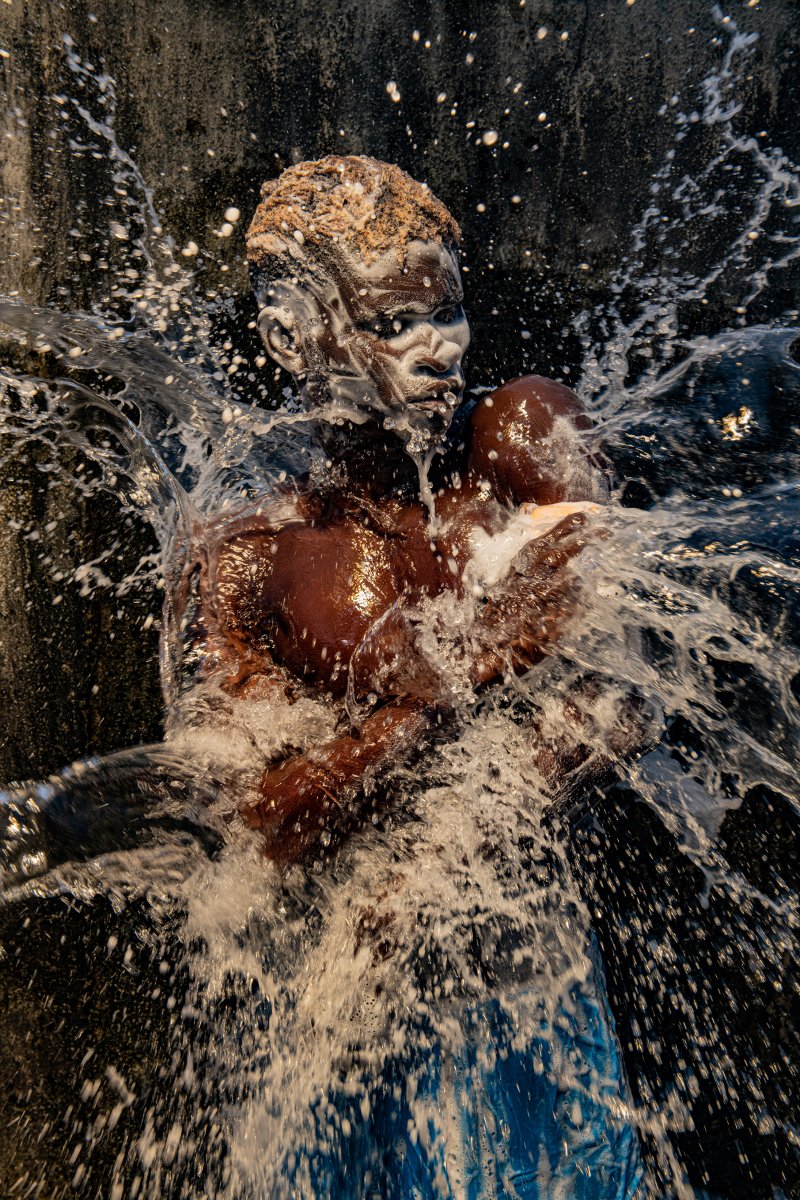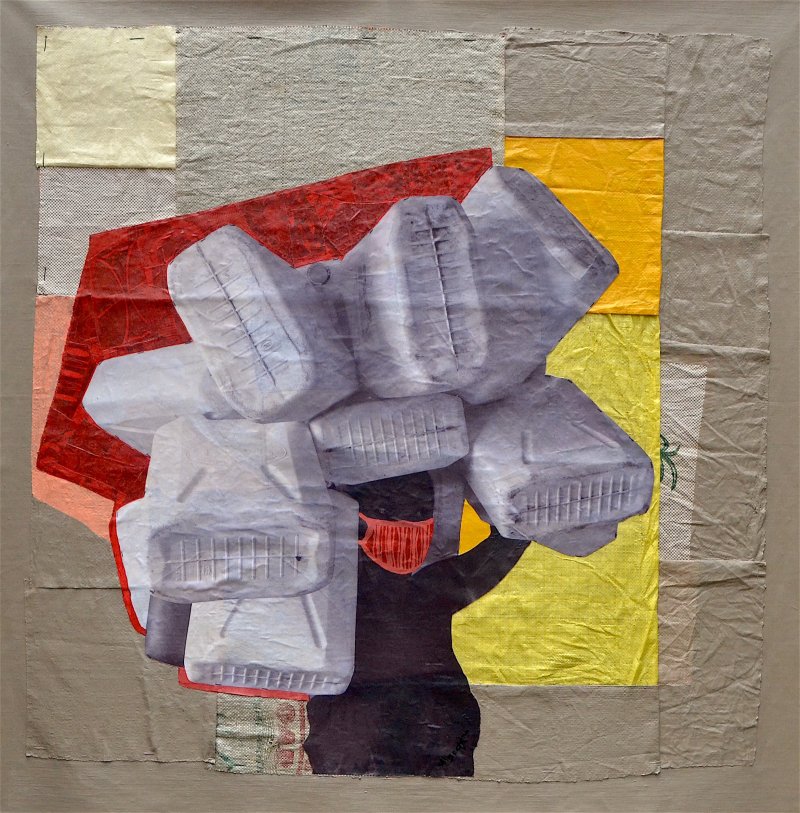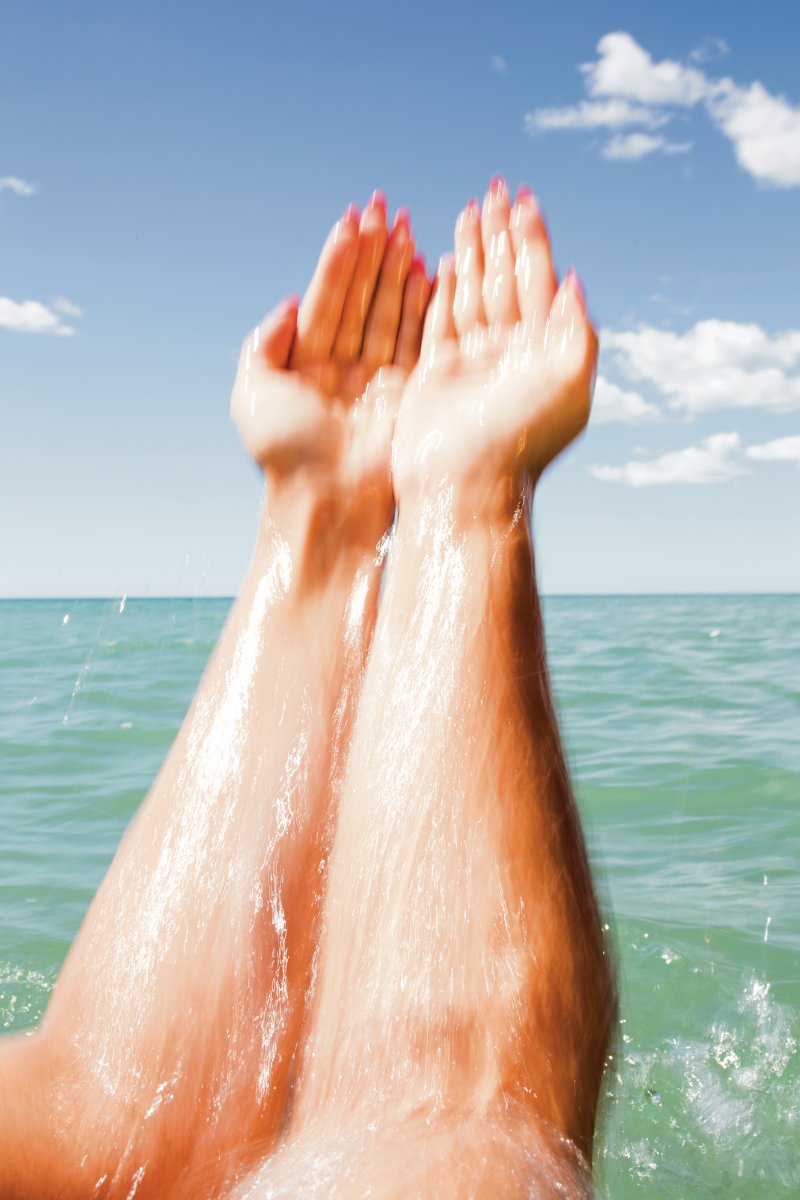On 28 Juy 2010, the United Nations General Assembly recognised water and sanitation as a human right. Today, more people have basic water services than they did a decade ago, but millions around the world still walk miles a day to access them. According to a report by UNICEF and the World Health Organisation last year, 1.8 billion people have gained basic drinking water services since 2000. But 1 in 10 people still do not have access. Around 2.2 billion people do not have safely managed drinking water services, 4.2 billion people do not have safely managed sanitation services. And, in the throes of a pandemic, 3 billion do not have basic handwashing facilities.
To mark the ten years since UNGA’s declaration, the charity WaterAid commissioned ten photographers to illustrate the impact these water and decent toilets have on people’s lives.
Cristina de Middel, Spanish documentary photographer based in Bahia, Brazil
“I wanted to reflect on the fact that the abundance of water does not necessarily mean the quality of water. I live in a small town in the state of Bahía (Brazil) and we are in the middle of the rainy season. There is water everywhere, but it rains with such intensity that the water system collapses very often and there is no water at home. We just walked to one of the many streams and sources of water there is around with a few ideas in mind and played with the different possibilities.”

Dafe Oboro, Lagos, Nigeria
“Pour me Water, Pure Water presents one idea – bathing as an essential everyday ritual. This serves as a tribute to local workers around me here in Lagos, from the mechanics to the plumbers and the bricklayers who I see taking their baths, with their shorts on, behind parked buses. It is evident that without such right, a ritual as simple and important as bathing would be impossible. In the end, water is life.”

Serge Attukwei Clottey, Ghana
“In Ghana, the streets are filled with children carrying yellow buckets on their heads, on their way to a fountain…. Every day I would see women and children pour in by the hundreds. I want this photo to demand social justice by exposing environmental problems in today’s society. It inspires the human spirit by calling people to action.”

Joseph Obanubi, multimedia artist based in Lagos, Nigeria
“For many communities, water sources are usually far from their homes, and it typically falls to women and girls to spend much of their time and energy fetching water, a task which often exposes them to attack from men and even wild animals. Without improved sanitation – a facility that safely separates human waste from human contact – people have no choice but to use inadequate communal latrines or to practise open defecation. Finding a place to go to the toilet outside, often having to wait until the cover of darkness, can leave them vulnerable to abuse and sexual assault.”

“[The work] dabbles into spirituality, functionality and gender, referencing Nigerian-Yoruba sitting sculptures with the poses. It dwells on the healing qualities of water as an integral part of a things. Water is a basic element of life and an essential factor in the Yoruba religion. Yoruba believe water to be a symbol of force and strength.”

Collin Sekajugo, a Ugandan multidisciplinary artist living and working in Rwanda and Uganda
“I have always found the jerrycan to be such a symbolic item in African homes. In almost every community it’s used for trading consumer commodities… most importantly it’s commonly used for fetching and storing water. I have grown to believe that a home without a jerrycan is unliveable. This artwork speaks to the symbolism of a jerrycan versus its importance in accessing clean water and observing sanitation. [It] is dedicated to all the women and children – especially young girls – who, on a daily basis, walk miles in search for clean water to sustain their families’ wellbeing.”

Poulomi Basu, an Indian transmedia artist, photographer, activist and author
“The water in the bath tub [is] blood red: a symbol of menstruation. I have kept the boots, but added a bucket, a symbol of the great distances the many women around the world must walk to fetch water, or to find the seclusion of a forest, so that they can go to the toilet. I’ve replaced the photo of Hitler with ‘Anjana, a 12 year-old child bride, Nepal’ from my series, ‘Blood Speaks’, to reframe this image in the shadow of all of those who live without adequate sanitation, and systems of blood politics and control, which are often connected. I hope that this image makes people reflect on the easy access we have to water and sanitation, and how for so many women and girls across the world, this is simply not the case.”

Also featuring in WaterAid’s collection are: Saidou Dicko, a self-taught visual artist, photographer, videographer, installer and painter from Burkina Faso; Henry J Kamara, a British Sierra Leonean artist, photographer and story teller; British- Mexican multidisciplinary visual artist, Monica Alcazar-Duarte; and Giya Makondo-Wills, a British-South African documentary photographer.

“Nafoore Garden, T Fleur Bleu” by Saïdou Dicko

“Wata” by Henry J Kamara

“VIVAZ” by Monica Alcazar-Duarte

“Constant Ritual” by Giya Makondo-Wills


You can find out more about WaterAid’s response to the Covid-19 pandemic, and their work on access to water here: https://www.wateraid.org/global-covid-19-response






